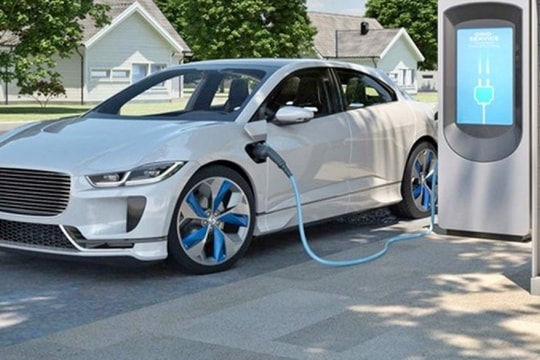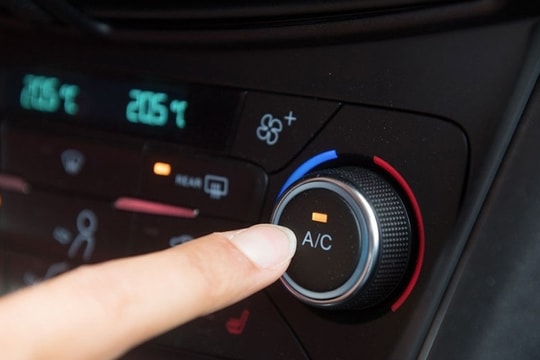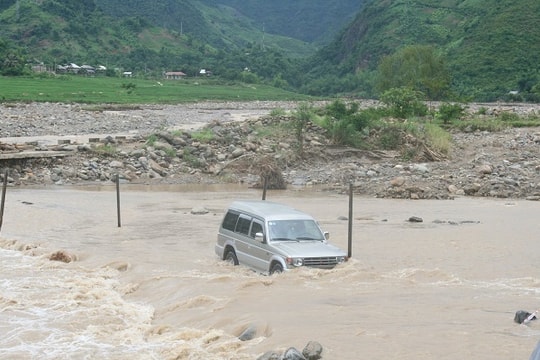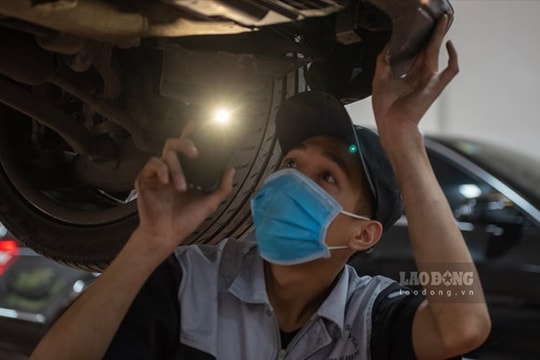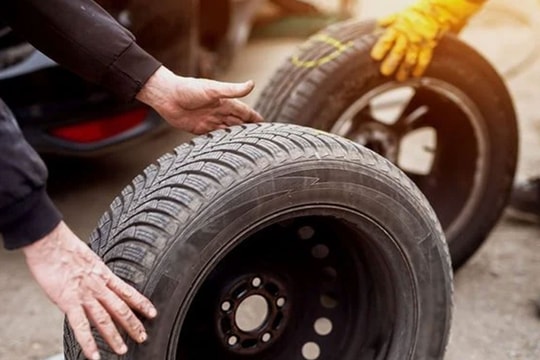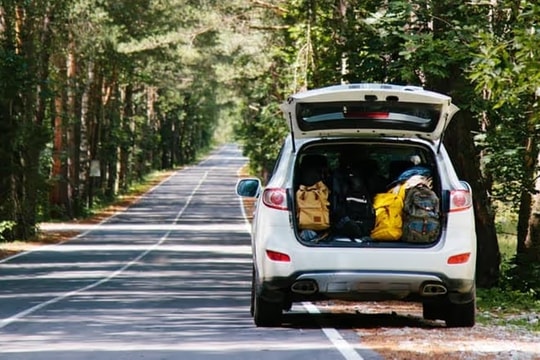Causes of quick damage to car batteries
(Baonghean.vn) - Car batteries play an important role in starting the car, so drivers must know how to use them properly to avoid damage and unwanted problems. Below are the reasons that can cause the battery to quickly run out of power and break down.
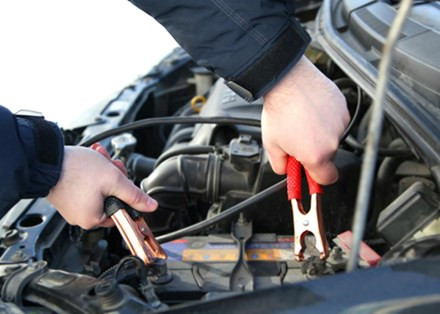 |
Using too much electricity in cars
Turning on the lights and equipment in the car when the engine is not running such as the headlights, turn signals, interior lights, air conditioning system, and entertainment sound system will cause the battery to lose power quickly. Especially when the battery is completely drained, then using a jumper to recharge the battery will cause your battery to deteriorate faster.
In addition, forgetting to turn off electrical devices overnight also causes the car battery to run out of power quickly.
Low ambient temperature
Cold weather will make the car battery work harder because the engine solution is frozen, so when starting it needs enough energy to operate the system. If the ambient temperature is too high, the solutions will easily evaporate, the concentration of the solution in the tank changes, the reaction occurs quickly and causes damage to the internal structure of the battery. Therefore, it is necessary to regularly monitor the loss of solution in the tank and add it to the specified level.
The engine has not been started for a long time.
For new cars with original and normal electrical systems, turning off the engine does not mean that the car no longer consumes electricity. When the car is not started, the control command and the anti-theft system are still ready to operate. Therefore, when left for a long time, the amount of electricity in the battery will be below the threshold to start the car.
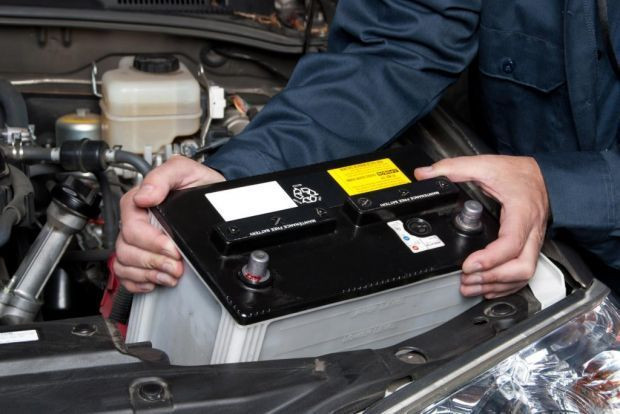 |
Weather conditions
Car batteries will shorten their lifespan very quickly if they are regularly exposed to hot sunlight. Most batteries work on the principle of chemical reactions to release energy, so high temperatures will negatively affect this process.
Therefore, if you have to park your car in the hot sun, you need a heat-insulating cover, not only to protect the battery but also to prevent fading in many other parts of the car.
Car flooded
When starting or stopping the engine continuously will save a certain amount of gas but that affects the life of the battery. And when the lines or plugs are flooded, the power source will be exhausted and can paralyze many parts of the car.
In addition, after a car is flooded and left for a long time without being checked and maintained, the battery terminals will quickly rust, leading to poor contact with the electrical wires, making the starting process difficult.
No regular maintenance
Without regular maintenance, you will not be able to know how much fluid is left in the tank, whether the surface and terminals of the tank are still white and clean. That will make the operation of the car battery less efficient, significantly reducing its lifespan.
Therefore, it is necessary to regularly check the battery, clean the surface of the battery, and use battery testing equipment to avoid unnecessary problems.
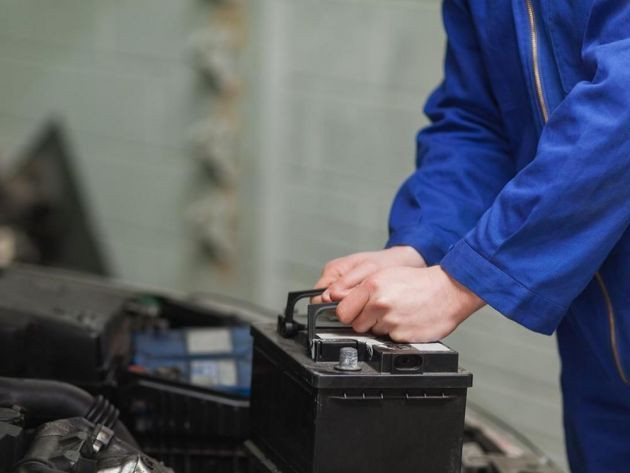 |
Driving habits
Car batteries will last longest if they are fully charged before use. To fully charge a battery, the car needs to be operated normally and continuously for a period of more than 20 minutes (provided that the charging system is not faulty).
Therefore, if you often travel on short routes, often have to turn off and restart the battery, the battery life will also be reduced. Unfortunately, saving a little gas when stopping at red lights is the culprit that shortens the battery life.
*How to properly maintain and care for batteries. The two common types of batteries used in cars are open batteries (wet batteries) and sealed batteries (dry batteries). Wet batteries can be maintained by adding water; dry batteries do not require maintenance and are used once until they run out of power. In hot weather, the ambient temperature and heat in the engine compartment will cause the battery to evaporate (for vehicles using water batteries). The battery solution will be depleted, reducing the discharge capacity as well as the battery life, making the vehicle difficult to start or unable to start. High temperature also affects the concentration of solution in the battery, causing reactions to occur quickly, damaging the internal structure of the battery. Therefore, it is important to note that you should only add water to the battery when the solution in the battery is lower than the specified level; when adding distilled water, make sure the solution is higher than the MIN level and does not exceed the MAX level. To ensure the concentration of the solution in the battery, do not add any other solution other than distilled water. In case of adding distilled water to the battery yourself, you must ensure the battery concentration as well as the battery voltage. If you do not use your car regularly during hot weather, you should start the car twice a week, for at least 15 minutes each time, to ensure the battery is in good working condition. Regularly check the condition of the wires connected to the tank. If the wire is loose, tighten it. If the wire is dirty or rusted, clean and replace it. If properly maintained, batteries typically last 2.5 - 3.5 years. |
Ngoc Anh
(Synthetic)
| RELATED NEWS |
|---|


